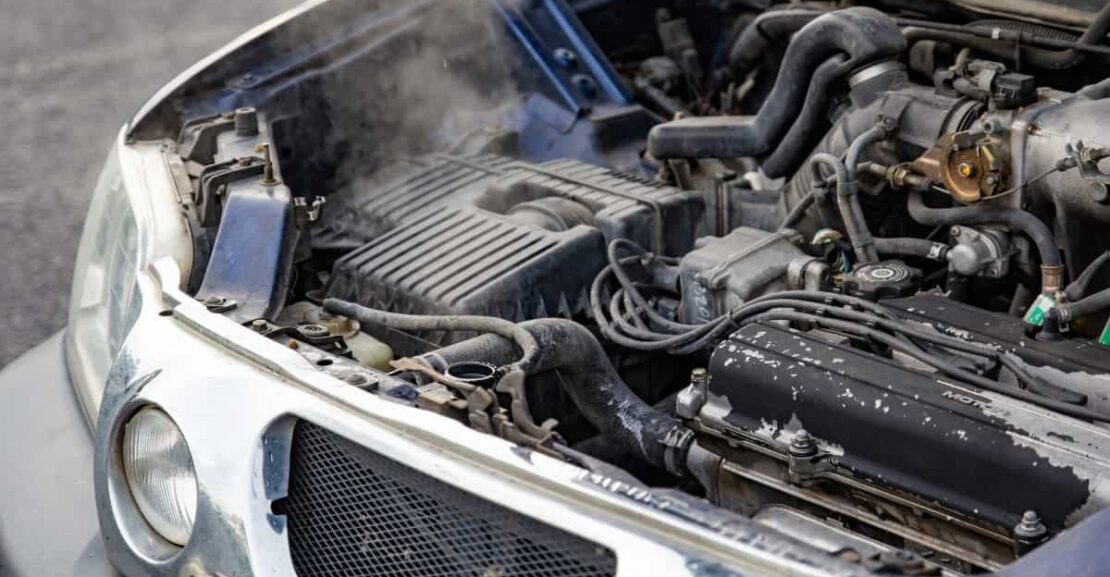One issue that many drivers deal with is overheating. A vehicle could sustain harm from an overheated engine, sometimes a permanent one. A popular saying goes thus: “A hot engine, a hot driver.” Although a high temperature is one of the primary causes of a vehicle’s overheating, it is not the only one
Knowing what causes overheating, what to do when your car overheats, and how to react to an overheated car are essential skills for drivers. Keep reading to learn what to do and what not to do.
Causes of Overheating
A low coolant level
Every car has a cooling system to keep the engine from overheating. The coolant may not be able to circulate effectively if your cooling system has a leak, obstruction, or pump issue. Malfunctioning cooling systems are a problem year-round, not simply in hot weather when coolant can freeze and restrict circulation.
You should make it a routine to check the coolant levels in your car. Look inside the radiator or the coolant reservoir. Make sure sure that the levels of your water and coolant are acceptable.
A Faulty Thermostat
The thermostat is in charge of controlling the flow of coolant through the engine. Your car’s cooling system may not operate properly if your thermostat is malfunctioning or broken.
Radiator Issue
Your car may overheat if your radiator cooling fan isn’t operating properly or isn’t running at the proper speed. The coolant heat that the fins have captured is partially removed by the air that passes over the radiator, but air can only do that when your vehicle is moving.
As a result, the radiator fan will turn on when your car stops. This fan circulates air over the radiator. If it’s broken, your car can overheat when it’s standing still before cooling off once you get it moving.
Electric motors power radiator fans most frequently, so any mechanical issues with the motor could prevent your fan from blowing out enough cool air. Your engine could easily overheat if something goes wrong with the radiator, such as a buildup of trash and particles.
In a similar vein, the radiator cap is made to maintain pressure in your cooling system. The coolant may simply boil off and flee the system if the cap is destroyed, as opposed to being adequately cooled.
Low motor oil
Oil in a car serves more purposes than just lubricating the moving parts. By reducing friction (basically removing extra heat from the engine), the oil also aids in regulating the engine’s temperature. As a result, engine overheating may occur if your car’s oil level is low, maybe as a result of an oil leak.
Internal engine parts are kept lubricated and ensured to move freely using oil. Lack of lubrication leads to friction, which generates excessive heat and may result in engine failure.
Read Also
- 7 Reasons Your Car is Consuming so Much Fuel
- How to Replace a Windshield Wiper on Your Vehicle
- 6 Causes of a Stiff Steering
Signs of Overheating
You may lessen the possibility of permanent engine damage if you can take action to cool your engine before it overheats to the point of failure. However, you must first become aware of the signs of overheating, which can include:
- A dashboard engine temperature indicator that spikes to “H” or the red.
- There is steam emerging from under the hood of the car, which can appear to be smoke.
- An odd odor emanates from the engine area. For instance, while leaking oil may smell more burnt, coolant leaks may smell lovely.
- Consult your owner’s manual for the specific symbols for your engine temperature gauge.
Ensure to follow these instructions and also get in touch with your local repair shop as soon as you notice the engine overheating.
What to Do in the Case of Overheating
- Stop driving, find a safe place to pull over and pack your car.
- Don’t immediately open the car hood. Wait for about 10 minutes. Keep an eye on the temperature gauge to see if it goes back to normal.
- Kill the AC if it is on, then crank the heat.
- Look for steam, leaks, or other issues.
- Top off the coolant cooling system with antifreeze or water will cool things off so you can get to your destination. Keep in mind that this could be a temporary fix, so keep an eye on your engine.
How to Prevent Overheating
- Check your car coolant regularly.
- Instead of using the AC try to let down the windows regularly to reduce engine load.
- Park your car under a shade.
- Pull over when you notice the engine starting to overheat.
- Check the coolant reservoir tank and fill it if needed.
What Happens if You Drive an Overheated Car?
The cylinder heads will eventually begin to deform if you allow your automobile to overheat and continue to drive. When this occurs, it may result in a blown head gasket, which would need a time-consuming and pricey repair.
Additionally, since the heads do not function as effectively when they are bent, it interferes with the combustion process.
Read Also




